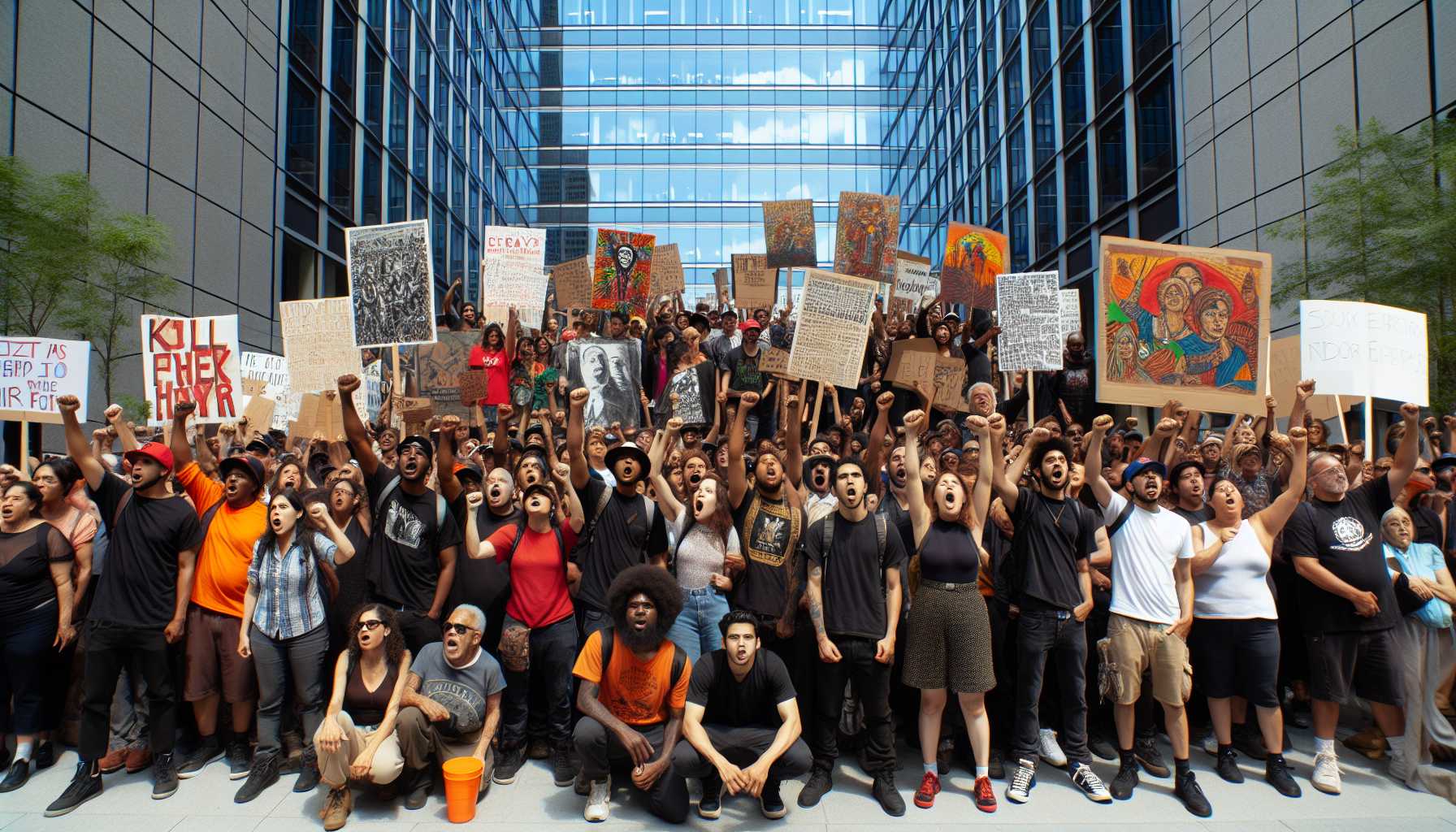The Tech Landscape in 2023: A Year of Change and Innovation
The past year has brought many changes to the tech sector, from rising cybersecurity threats to dramatic shifts in labor dynamics and AI safety concerns. Let’s dig deep into these fascinating developments.
A New Era for AI Safety at OpenAI
OpenAI is stepping up its game in addressing AI safety concerns. Following the departure of co-founder Ilya Sutskever—one of the key figures in the company—the tech giant has formed a brand-new safety team. Headed by CEO Sam Altman and board members Adam D’Angelo and Nicole Seligman, this team will evaluate and develop safeguards for OpenAI’s many AI projects.
But why is this so crucial? Altman’s new voice for ChatGPT, called Sky, caused a stir recently. While it was designed to sound eerily similar to Scarlett Johansson, Johansson herself refused to lend her voice to the project. However, Altman claimed it was never the intention to imitate her voice and that reaching out to her was merely an afterthought.
Despite this, the new safety team’s primary goal will be to explore and implement stringent safeguards to ensure replicas like Sky don’t stir up unnecessary commotion. As an expert in the tech industry, I see this as a necessary step. AI systems are becoming exponentially smarter and more critical in our daily lives, making safety oversight and ethical guidelines all the more essential.
YouTube Music Content Team Faces Termination and the Long Road Ahead
Imagine working diligently on critical content operations only to be unceremoniously laid off. That’s the unfortunate reality for more than 40 individuals on YouTube Music’s content operations team. This incident, coupled with the worker’s previous attempts to unionize, caught the attention of 46 Democratic members of Congress, who urged the National Labor Relations Board (NLRB) to take swift action.
Reps. Alexandria Ocasio-Cortez, Ilhan Omar, and others signed a letter expressing concerns about alleged retaliatory actions against these workers. Despite these challenges, the road ahead for these laid-off workers is cloudy but hopeful, thanks to continued legislative support and advocacy from unions like the Alphabet Workers Union-CWA.
As someone who invests in tech, I believe it’s vital to balance business operations with ethical treatment of employees. Google and Cognizant (the subcontractor involved) need to act more transparently and responsibly in handling such labor disputes.
The Midwest Router Cyberattack: An Untold Story
Last year, over 600,000 internet routers were unexpectedly disabled across the Midwest. The culprit? A cyberattack. Lumen Technologies’ threat research arm, Black Lotus Labs, has traced this incident back to a malicious firmware package known as Chalubo.
Chalubo, a remote access trojan, deleted essential operational codes in routers, leading to large-scale disruptions. Although the affected company, Windstream, remains silent, it stands as a cautionary tale for companies everywhere. With increasing reliance on internet services, cybersecurity can no longer be an afterthought.
In my opinion, this incident emphasizes the dire need for rigorous cybersecurity protocols. Businesses, especially those serving underserved regions, should bolster their defense mechanisms to protect against such disruptive attacks.
OpenAI and the Educational Sector: A New Dawn with ChatGPT Edu
Education is often considered the silver bullet to many of society’s ills, and AI can play a pivotal role in this space. OpenAI recently launched ChatGPT Edu, catering specifically to universities. This AI tool, powered by the faster GPT-4o model, is set to revolutionize the educational landscape by assisting in tasks like resume reviews, grant applications, and grading.
Moreover, OpenAI announced discounts for nonprofits to access ChatGPT Team, enhancing their operational functionalities. This development aims to democratize access to AI tools, making technology a partner in the pursuit of knowledge and social good.
From an investor’s perspective, I see immense growth potential here. The intersection of AI and education is ripe for innovation and can generate substantial returns while driving societal progress.
Instagram’s New ‘Trial Reels’ Feature: A Creative Playground
In an intriguing move, Instagram is experimenting with a feature called “Trial Reels,” allowing creators to post videos without them appearing on their profiles. This offers a sandbox for creativity, letting creators gauge the performance of their reels before sharing broadly.
Given the competitive landscape of social media, this feature could give Instagram a significant edge over competitors like TikTok. It addresses creators’ concerns about the pressure to consistently produce high-performing content and gives them space to experiment and refine their work.
As a tech aficionado, I find this feature promising. Creators are the lifeblood of social media platforms, and providing them with tools that reduce pressure and enhance creativity can lead to richer, more engaging content for all users.
Zero-Day Exploits: The Hidden Dangers of Enterprise VPN Products
Security firm Check Point recently revealed a zero-day vulnerability in its VPN products that attackers have exploited to breach corporate networks. This flaw allows remote attackers to obtain sensitive credentials, potentially compromising the entire network.
This is a sobering reminder that even security products are not immune to vulnerabilities. Patches are crucial for remediation, but the incident underscores how essential it is for companies to remain vigilant.
As a tech investor, these frequent breaches highlight the need for continuous innovation in cybersecurity. Companies should prioritize robust and proactive security measures to stay ahead of malicious actors.
Spotify’s Car Thing: The Rise and Fall of a Short-Lived Gadget
Spotify’s Car Thing was supposed to enhance in-car streaming experiences, but the short-lived device is now being discontinued. Spotify faced backlash, particularly from Gen Z users, when it was announced that the Car Thing would be rendered inoperative by December 2024.
Frustrated users took to social media to express their disappointment, leading Spotify to offer refunds for the device. The controversy even sparked a class-action lawsuit claiming Spotify misled customers by selling a device soon to be obsolete without offering refunds.
As a keen observer of tech trends, I find Spotify’s misstep both a cautionary tale and a learning opportunity. Companies must ensure that products are market-ready and deliver lasting value to customers to maintain trust and avoid such pitfalls.
TikTok’s Algorithm Clone: Navigating U.S. Scrutiny
TikTok is developing a clone of its recommendation algorithm to operate independently from its Chinese parent company ByteDance. This move comes as a response to ongoing scrutiny over national security concerns.
However, TikTok denied these claims, causing confusion about the project’s true intent. The clone could either make TikTok’s American operations more palatable to U.S. lawmakers or facilitate a smoother divestiture.
This step illustrates the complex interplay between global tech companies and national security legislation. In my view, TikTok’s efforts to address U.S. concerns exemplify the evolving regulatory landscape tech companies must navigate. Balancing innovation and compliance will be key to their continued success and market presence.
Conclusion
The tech industry is ever-evolving, with new challenges and opportunities emerging every day. From AI safety and labor rights to cybersecurity and market dynamics, companies must remain agile and forward-thinking. Embracing these changes can lead to innovation, growth, and societal advancement.








